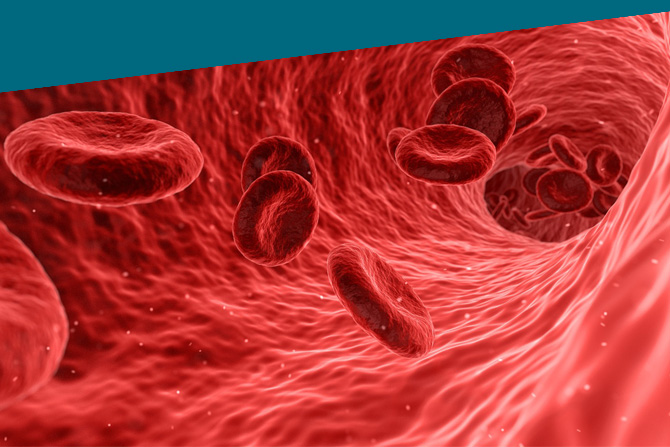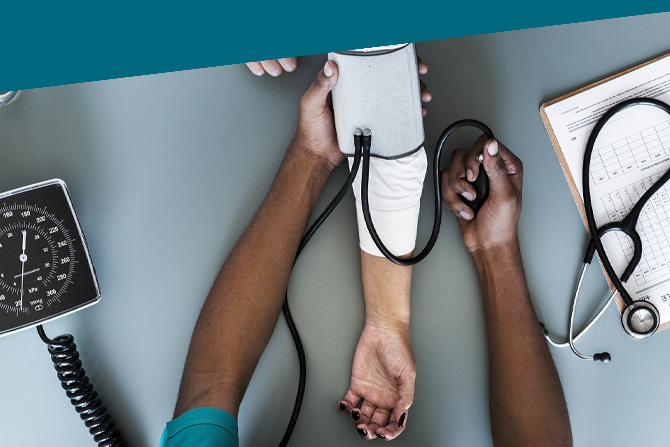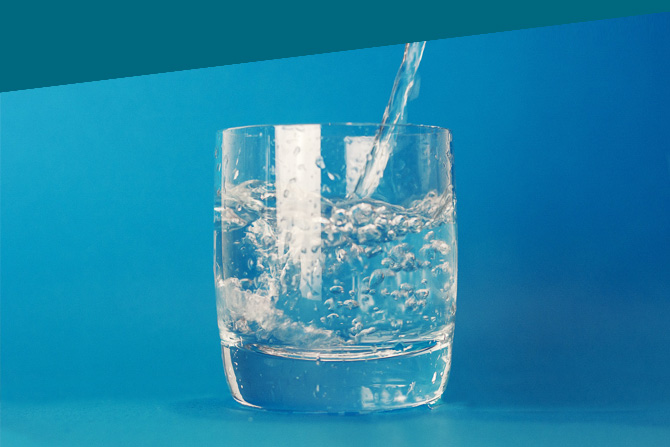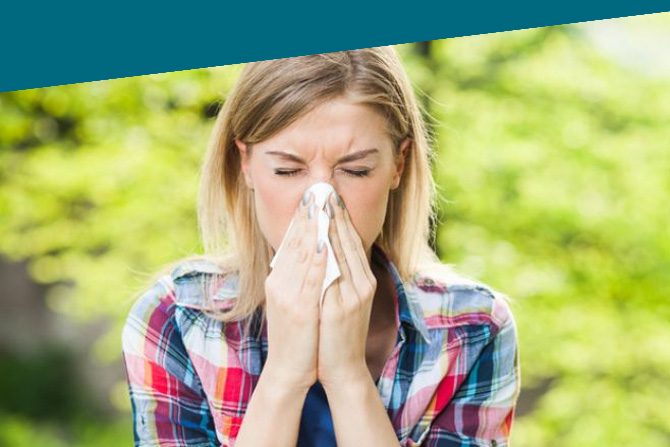What to Know About High Cholesterol
April 24, 2019

What is cholesterol?
Produced by the liver, it’s a dense, fatty substance found in all cells of our body. It plays a role in several important functions like making vitamin D, hormones and cell tissues, as well as protecting nerves. Plus, it’s found in substances like bile, used in digesting food.
The liver can meet the body’s requirements for cholesterol and can adjust that production based on how much we consume from foods like dairy, meat and eggs. However, eating too much can exceed that tolerance and some foods can have a negative impact on cholesterol levels.
You may also have heard the term “lipoproteins.” These substances form small packets to move cholesterol, fat and vitamins through the bloodstream.
Although high cholesterol itself is stealthy and may not have specific symptoms, it’s easy to check as part of routine blood testing.
Are There Different Kinds of Cholesterol?
There are two types of cholesterol. Your doctor will monitor the levels of each one as well as the ratio between them. Low-density (LDL) is the one that can cause problems by building plaque deposits that harden blood vessel walls. It’s referred to as the “bad” kind. This condition is called atherosclerosis or literally hardening of the arteries.
It leads to a narrowing of the artery and restricted blood flow, or even a total blockage. The plaque may also form blood clots that can migrate to other parts of the body and cause serious problems.
This process is especially dangerous when it occurs in the arteries of the heart. Enough blockage can lead to coronary disease, resulting in heart attack and death. It can also happen in other areas of the body, limiting circulation and causing damage in the brain (stroke), extremities, intestines and kidneys.
The other kind of cholesterol is called high-density (HDL) and is our “good” friend since it can aid in reducing the amount of the LDL type by helping to transport it to the liver and get it out of our bloodstream. The presence of this good cholesterol is important, plus a healthy ratio between HDL and LDL is encouraged.
Another related substance to address here is called triglycerides. They are a form of fat in the blood and can cause similar health issues. They are produced when we eat more calories than are body uses.
Do I Have High Cholesterol?
Is the condition rare? Not at all!
In fact, the Centers for Disease Control and Prevention have estimated that nearly a third of the adult population in the U.S. has high LDL cholesterol. Yet, the great majority of people with the condition do not have it under control, and less than half are receiving treatment.
Here are typical guidelines for target levels of these substances:
- Total cholesterol: Below 200, depending on relative HDL and LDL
- LDL cholesterol: Below 130, depending on risk for heart disease
- HDL cholesterol: 60 or higher to reduce risk for heart disease
- Triglycerides: Below 150 milligrams per deciliter
Age is an important factor in having high cholesterol, with people in their sixties having about triple the chance of developing it compared to those in their twenties. Recommendations include monitoring it for men beginning at age 35 and for women at 45, or younger for people with risk factors for heart disease.
One important factor to communicate to your doctor is any history of high cholesterol or triglycerides in your family. These conditions can be hereditary, which means you should probably monitor your levels as a routine part of your wellness exams.
How Can I Manage My Cholesterol?
It’s pretty simple. Eat right, exercise, watch your weight and don’t smoke.
Tips on how to lower cholesterol or avoid high cholesterol altogether include:
- Shifting from saturated fat (red meat, dairy) and trans fat (packaged and fried food, margarine, shortening) to healthier items with polyunsaturated types of fat (lean meat, low-fat dairy, nuts, avocado) and omega-3 fatty acids (some fish, some nuts).
- Eating soluble fiber like that contained in a wide range of food choices such as fortified breakfast cereal, oats and whole grains, beans and peas, and lentils. Fiber supplements are also available.
- Even modest exercise can be beneficial. Try yoga, a bike ride, a walk around the neighborhood. Just a half-hour of such activity each day can help raise your HDL (“good”) cholesterol.
- Maintaining a healthy weight can have a beneficial double impact on your health by building up good cholesterol while also reducing the bad stuff.
- Smoking changes how the body manages cholesterol by reducing the ability of immune cells to remove cholesterol from the walls of blood vessels and back into the blood.
- Alcohol consumption in moderation can increase HDL and help remove cholesterol from blood vessel walls.
Dietary supplements like natural plant stanols and sterols can provide a different type of cholesterol with some beneficial properties. Other supplements include fish oil, psyllium and coenzyme Q10. Of course, based on a number of factors, at some point in your life you may need to take medication to manage your cholesterol.
Your doctor will know the best approach for your individual situation.










